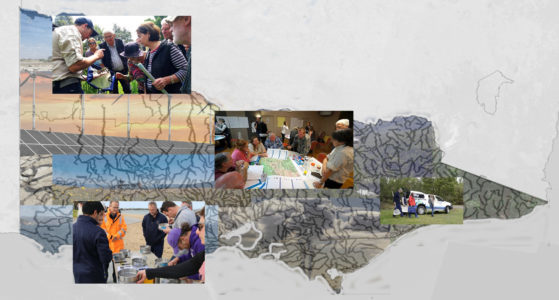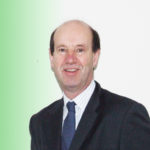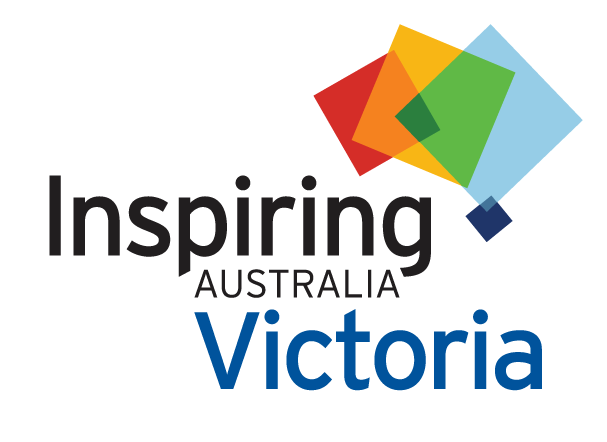
- This event has passed.
Global Citizen Science: Can Citizens Deliver and Make a Difference?
17 September 2018 @ 2:00 pm – 4:00 pm

We are witnessing an explosion of Citizen Science activity as technology makes it possible for citizens to take part in science and deliver unprecedented levels of quality data across the globe. Now more than ever, successful programs are needed to drive change and encourage Governments to actively engage across the planet with the Citizen Science Community.
This talk and the associated discussions will explore whether we are ready to take the next step as Global Citizen Scientists and develop the integrated programs that will prove the value of Citizen Science at the global level. It will also explore the leading role that Australia could play in that process as the lessons learnt in running Citizen Science Programs on the Australian Continent are shared with the global community.
With support from UNEP and the Wilson Centre in the US, the Citizen Science Global Partnership (CSGP) was agreed at the UN Environment Assembly (UNEA3) in Nairobi 2017. Citizen Science Associations have emerged in Australia, Europe the USA and Asia and discussions are underway to set up Associations in Africa and South America. CSGP is planning sessions on Citizen Science in Dubai at the Eye-on-Earth Symposium in October 2018 that will take part in parallel with the UN World Data Forum as the value of unconventional data sources is increasingly recognised by National Government. CSGP will also be present in Nairobi at UNEA4 in March 2019 at the highest-level environmental decision making body on the planet.
Martin Brocklehurst has been at the forefront of activity to bring the global citizen science community together to develop global programmes that have the potential to provide data and information that can be used to:
- Empower citizens to manage emerging risks to their health and wellbeing;
- To provide information to Governments that can be used to justify policy shifts to deal with emerging global problems such as poor urban air quality and invasive species that bring new diseases and disrupt existing ecosystems;
- Track progress against the UN Sustainable Development Goals; and
- Provide health professionals with levels of detail on disease and disease vector carrying species, at a speed and accuracy that will enable scarce resources to be targeted with a precision not possible using conventional scientific approaches.
About the Speaker:
 Martin Brocklehurst is the Chair of the European Citizen Science Association Policy Working Group and Coordinator of the CSGP Delegation to the UN World Data Forum in Dubai in October 2018. He is visiting Australia in September to meet with policy-makers, share his experience and discuss all aspects of utilizing Citizen Science to achieve policy outcomes.
Martin Brocklehurst is the Chair of the European Citizen Science Association Policy Working Group and Coordinator of the CSGP Delegation to the UN World Data Forum in Dubai in October 2018. He is visiting Australia in September to meet with policy-makers, share his experience and discuss all aspects of utilizing Citizen Science to achieve policy outcomes.
Martin is a founding instigator of the European Citizen Science Association (ECSA) and the Global Mosquito Alert Consortium. He is Chair of the ECSA Policy Working Group and has significantly raised the profile of Citizen Science and its potential value to governments and global institutions, working with UNEP and Citizen Science Associations around the world. Martin is an acknowledged leader of the Citizen Science movement and has developed working relationships at the highest level globally to promote the value of Citizen Science and the data it can deliver to the UN Agenda 2030 Sustainable Development Goals.
Martin is also a national expert on Waste and Resource Management and the UK National Representative on the ISO and CEN/CENELEC Ad Hoc Groups to explore what additional standards are needed to promote the Circular Economy and previously he was the Technical Advisor to the Parliamentary Environment Audit Select Committee, “Growing a Circular Economy; Ending the throwaway society” as well as adviser to the International Solid Waste Association (ISWA) on the same topic.
Martin has taken on environmental advisory roles for a wide range of organisations including NGO’s, Public Sector Regulators, Trade Bodies and the UK Parliamentary Audit Committee. For 13 years, he was a senior public-sector regulator, in developing and delivering UK Environmental Regulations, pioneering new approaches to regulation. For 14 years, he was a senior health safety and environmental manager in business recognised for delivering outstanding performance for multi-national oil companies. Independent Environmental Consultants (2011-18), Executive Manager UK Environment Agency (1998-2011), Senior HSE Manager Gulf Oil, Chevron and BP (1984-1998).
Martin’s specific interests in Citizen Science and the SDG’s relate to:
- Invasive species and in particular tree diseases;
- CS Global Mosquito Alert and linked CS health monitoring;
- CS Air Quality monitoring and linked CS health monitoring;
- CS projects on Resource Efficiency and the Circular economy;
- CS projects relating to litter monitoring on land and programmes to reduce plastic litter into the marine environment from land; and
- CS in supporting programs to understand and reduce the decline in natural ecosystems.
Presented by the Victorian Chapter of the Australian Citizen Science Association in partnership with the Arthur Rylah Institute for Environmental Research, the Royal Society of Victoria, the United Nations Association of Australia Victorian Division, the European Citizen Science Association and the Citizen Science Global Partnership.

